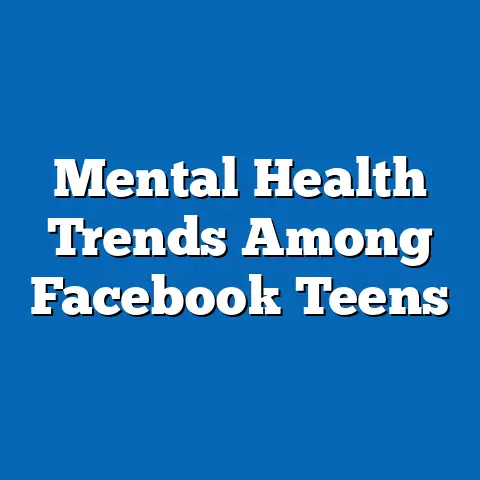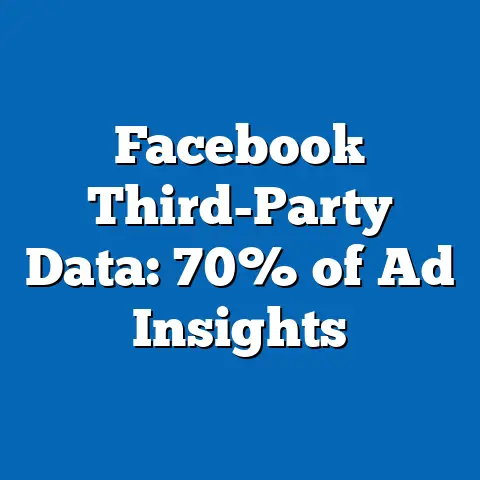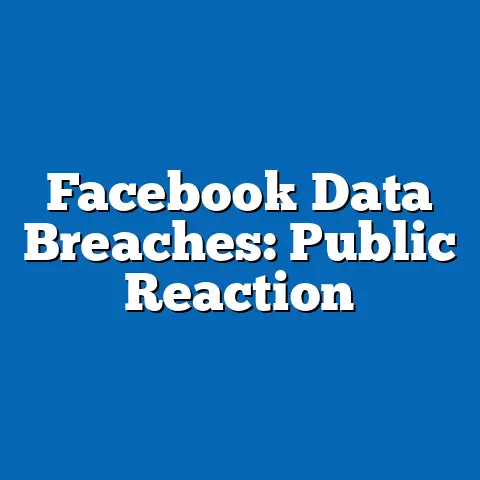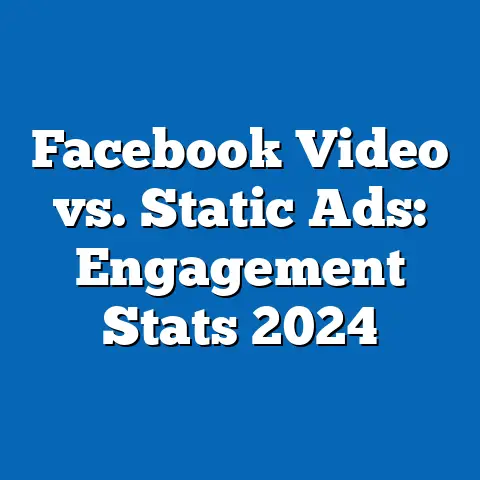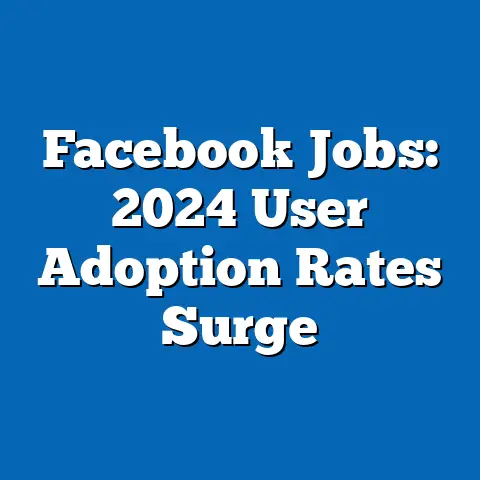Impact of Facebook Scandals on User Behavior
In an era where social media platforms shape public discourse and personal connections, Facebook—now under the Meta umbrella—has faced intense scrutiny over privacy breaches, misinformation, and ethical concerns.
High-profile scandals, from the 2018 Cambridge Analytica data leak to the 2021 whistleblower revelations by Frances Haugen, have eroded public trust in the platform.
As of 2024, these incidents continue to influence how users interact with Facebook, raising critical questions about whether users are abandoning the platform, altering their behavior, or simply accepting the risks.
The Scale of Facebook Scandals: A Timeline of Trust Erosion
Early Controversies and the Cambridge Analytica Fallout
Facebook’s history with scandals dates back over a decade, but the 2018 Cambridge Analytica incident marked a turning point.
The scandal revealed that the personal data of up to 87 million users was improperly accessed by a political consulting firm to influence voter behavior during the 2016 U.S.
presidential election (The Guardian, 2018).
This breach exposed systemic flaws in Facebook’s data protection policies and led to a global outcry over user privacy.
Following the incident, a Pew Research Center survey in 2018 found that 54% of U.S.
Facebook users adjusted their privacy settings, while 42% took a break from the platform for several weeks or more.
The fallout also triggered regulatory actions, including a $5 billion fine from the U.S.
Federal Trade Commission (FTC) in 2019—the largest ever imposed on a tech company for privacy violations (FTC, 2019).
The 2021 Whistleblower Revelations
In 2021, former Facebook employee Frances Haugen leaked internal documents showing that the company prioritized profits over user safety.
The documents revealed that Facebook was aware of the harmful effects of its algorithms on mental health, particularly among teens, and its role in amplifying misinformation during events like the January 6th U.S.
Capitol riot (The Wall Street Journal, 2021).
This reignited public and governmental scrutiny, with 67% of U.S.
adults in a 2021 Gallup poll expressing concern about the platform’s impact on democracy.
These events, combined with ongoing issues around misinformation during the COVID-19 pandemic, have compounded trust issues.
By 2024, the cumulative effect of these scandals is evident in shifting user attitudes, which we will explore through engagement metrics and demographic data.
User Trust in Facebook: A Data-Driven Snapshot
Declining Trust Metrics
Trust in Facebook has measurably declined over the past decade.
According to a 2023 survey by the Edelman Trust Barometer, only 27% of global respondents trust social media platforms like Facebook to handle personal data responsibly, down from 40% in 2018.
In the U.S., a 2024 Pew Research Center report indicates that just 31% of adults believe Facebook protects their privacy, a sharp decline from 54% in 2014.
This erosion of trust correlates with user actions.
A 2023 study by the University of Southern California found that 38% of active users have reduced the personal information they share on the platform since 2020, citing privacy concerns as the primary reason.
Global Variations in Trust
Trust levels vary significantly by region.
In Europe, where data protection laws like the General Data Protection Regulation (GDPR) are stringent, only 22% of users trust Facebook with their data, per a 2024 Eurobarometer survey.
In contrast, in regions like Southeast Asia, where Facebook remains a primary internet access point through initiatives like Free Basics, trust levels are higher at 45% (DataReportal, 2024).
These disparities highlight how cultural attitudes toward privacy and regulatory environments shape user perceptions.
They also underscore the challenge Meta faces in rebuilding trust across diverse global markets.
Shifts in User Behavior: Engagement, Retention, and Exit
Engagement Trends Post-Scandals
Despite trust issues, Facebook’s user base remains massive.
As of Q1 2024, Meta reported 3.24 billion monthly active users worldwide, a 7% increase year-over-year (Meta Investor Relations, 2024).
However, engagement metrics—time spent on the platform and interaction rates—tell a more nuanced story.
A 2023 report by eMarketer found that average daily time spent on Facebook among U.S.
users dropped from 38 minutes in 2018 to 30 minutes in 2023.
This decline is partly attributed to competition from platforms like TikTok, but surveys suggest scandals play a role too.
According to a 2024 Morning Consult poll, 29% of U.S.
users who reduced their time on Facebook cited “lack of trust” as a key factor.
Retention and User Exodus
While total user numbers grow, retention rates among certain demographics are slipping.
A 2023 study by the Digital Marketing Institute found that 12% of U.S.
users aged 18-34 permanently deleted their accounts between 2020 and 2023, compared to just 5% of users aged 55+.
Younger users often cite privacy scandals and ethical concerns as reasons for leaving, with 62% of Gen Z respondents in a 2024 YouGov survey stating they “no longer trust Facebook with personal data.”
However, complete abandonment is not the norm.
Many users adopt a cautious approach—maintaining accounts but limiting activity.
A 2024 Statista survey revealed that 41% of global users now use Facebook primarily for group interactions or marketplace features, rather than personal sharing, a shift from 68% who used it for personal updates in 2018.
Data Visualization Description: Engagement Decline by Age Group
Imagine a line chart tracking average daily minutes spent on Facebook from 2018 to 2024, segmented by age groups (18-34, 35-54, 55+).
The chart would show a steep decline for the 18-34 group, dropping from 45 minutes in 2018 to 25 minutes in 2024.
The 35-54 group shows a moderate decline, while the 55+ group remains relatively stable, hovering around 30 minutes.
This visual would highlight how younger users are disengaging faster, likely influenced by scandals and alternative platforms.
Demographic Differences in Response to Scandals
Age-Based Behavioral Shifts
Age plays a significant role in how users respond to Facebook scandals.
Gen Z and Millennials (ages 18-34) are more likely to take decisive action, with 48% of this group in a 2024 Pew survey reporting they’ve reduced usage or deleted the app since 2021.
In contrast, only 19% of Baby Boomers (ages 55+) reported similar actions, often citing familiarity with the platform and lack of alternatives as reasons to stay.
Younger users are also more likely to migrate to platforms perceived as safer or more ethical.
A 2023 eMarketer report notes that 54% of U.S.
Gen Z users now spend more time on Instagram and TikTok, compared to just 22% of Boomers who have adopted these alternatives.
Gender and Socioeconomic Patterns
Gender differences are less pronounced but still notable.
A 2024 YouGov survey found that women are slightly more likely than men to express concern about privacy on Facebook (58% vs.
52%) and to adjust privacy settings (61% vs.
55%).
This may reflect broader trends in online safety concerns among women, as noted in a 2023 UN Women report on digital harassment.
Socioeconomic status also influences behavior.
Users with higher education and income levels are more likely to be aware of scandals and take protective measures.
A 2023 USC study found that 65% of users with a college degree adjusted their privacy settings post-scandal, compared to 44% of those with a high school diploma or less.
Regional and Cultural Nuances
Cultural context shapes reactions as well.
In the U.S.
and Europe, where media coverage of scandals is extensive, users are more skeptical—only 28% of U.S.
users in a 2024 Gallup poll believe Facebook acts in their best interest.
In contrast, in regions like Africa and South Asia, where Facebook often serves as a primary communication tool, 52% of users in a 2024 DataReportal survey expressed neutrality or continued trust, despite awareness of scandals.
Historical Trends vs. Current Data: A Comparative Analysis
Trust and Engagement Over Time
Comparing historical data with 2024 figures reveals a slow but persistent decline in trust.
In 2014, before major scandals, 62% of U.S.
users trusted Facebook with their data (Pew Research, 2014).
By 2018, post-Cambridge Analytica, this dropped to 41%, and by 2024, it stands at 31%.
Engagement time has followed a similar downward trend, particularly among younger demographics, as previously discussed.
However, user growth has not mirrored this decline.
Global monthly active users grew from 2.27 billion in 2018 to 3.24 billion in 2024 (Meta Investor Relations).
This suggests that while trust and engagement per user may wane, Facebook’s sheer scale and lack of direct substitutes in many markets sustain its user base.
Regulatory and Corporate Responses
Historically, each scandal has prompted regulatory and corporate action, though with varying impact on user behavior.
Post-2018, Facebook introduced stricter app developer policies and transparency tools, yet only 34% of users in a 2020 Pew survey found these changes meaningful.
By 2024, despite Meta’s investments in privacy features like end-to-end encryption for Messenger, skepticism persists—only 29% of users believe these updates adequately address concerns (Morning Consult, 2024).
This gap between corporate action and user perception indicates that rebuilding trust requires more than technical fixes; it demands cultural and ethical shifts that may take years to manifest.
Methodologies Behind the Data
Sources and Surveys
Engagement Metrics
Engagement data, such as time spent on the platform, comes from industry trackers like eMarketer and DataReportal, which aggregate user behavior through app analytics and self-reported surveys.
These methodologies combine direct measurement (e.g., app usage logs) with user feedback to provide a holistic view, though self-reporting can introduce recall bias.
Limitations
While the data is robust, limitations exist.
Regional disparities in survey access mean some global trends may overrepresent Western perspectives.
Additionally, Meta’s self-reported user numbers may not fully account for inactive or duplicate accounts, potentially inflating active user figures by 5-10%, as estimated by a 2023 Reuters analysis.
Broader Implications and Future Trends
The Trust Deficit and Social Media’s Future
The impact of Facebook scandals on user behavior in 2024 underscores a broader trust deficit in social media.
While the platform retains a vast user base, declining engagement and trust among key demographics—especially younger users—signal potential long-term challenges.
If Gen Z and Millennials continue to migrate to competitors like TikTok, which reported 1.5 billion monthly active users in 2024 (Statista), Meta may struggle to maintain relevance in critical markets.
Regulatory Pressure and Corporate Accountability
Increased regulatory scrutiny, particularly in the EU and U.S., could force Meta to prioritize user safety over growth.
The EU’s Digital Services Act, fully enforced in 2024, imposes fines of up to 6% of global revenue for non-compliance with content moderation and privacy rules (European Commission, 2024).
Such measures may restore some user confidence, but only if enforcement is consistent and transparent.
User Empowerment and Digital Literacy
Ultimately, user behavior will also depend on digital literacy.
Initiatives to educate users on privacy settings and data rights—such as those promoted by non-profits like the Electronic Frontier Foundation—could empower individuals to make informed choices.
A 2023 study by the University of Oxford found that users with higher digital literacy were 40% more likely to adopt protective behaviors on social media, suggesting education as a key tool for change.
Conclusion: Navigating a Fractured Digital Landscape
Facebook’s scandals have undeniably altered user behavior by 2024, fostering a cautious, often skeptical relationship with the platform.
While total user numbers grow, engagement wanes among younger, privacy-conscious demographics, and trust remains at historic lows.
Regional, cultural, and socioeconomic factors further complicate the picture, creating a fragmented landscape of user responses.
Looking ahead, Meta faces a dual challenge: addressing systemic issues through meaningful reform while competing in an increasingly crowded social media market.
For users, the onus is on balancing convenience with caution, as scandals highlight the risks of unchecked data sharing.
As social media continues to evolve, the lessons from Facebook’s controversies may redefine how we engage with digital platforms in the decades to come.

